|
Message from the Executive Director
Patric Barbieri
|
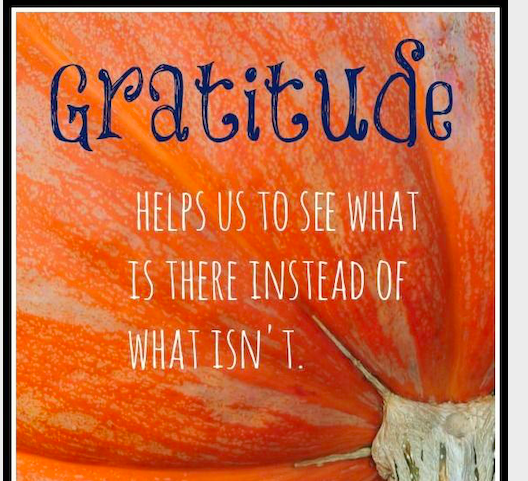
There is Hope and Gratitude for a Community
We have all watched, observed, and felt the second wave of the virus hit us, the district metrics have changed, and there are now two vaccines that are over 90% effective and will be available soon. Such contrasts in one month, but there is hope. We have to dig deep to find gratitude. It hasn't been easy to come by, but we can have gratitude that there is hope.
In-person, hybrid, remote, quarantine, close contacts, positive case, and masks are all words we are using every day to manage our community to keep everyone safe. We forget, even for a moment, that we are in a pandemic then we come back to reality. We walk out of our car and forget our mask; we feel guilty or embarrassed that we forgot it; we run back to grab it and throw it on because we want to do the right thing.
Thanksgiving is approaching, which many would say is their favorite holiday. A time of family, reflecting, showing gratitude, giving thanks, as we know there are others that may be struggling. This holiday will be different for most of us, but we dig deep again to find gratitude. It is a healthy exercise and perhaps when we reflect on prior years we think, "I wasn't aware of how much we have to be grateful for until now."
I want to express my gratitude to the LABBB Community. Thank you for persevering through such a difficult time. There hasn't been an easy decision or easy week since March, but there are so many people that have offered just the right words, at the right time, in the right way. Those words have inspired us and given us hope.
Wishing Everyone a Happy Thanksgiving,
Patric
|
|
LABBB Parent Night: Thursday, November 19, 6:30pm - 8:00pm (Zoom)
|
Planning a Life: Transition Considerations for Your Child's Future
Description
This workshop is presented by Leo Rotman, CFP of River Financial Group and Karen Mariscal of Mariscal Special Needs Law. They will help you figure out a plan for your child's future that incorporates various government benefits, estate planning ideas and helps you to figure out how to make the most of your own financial resources.
|
Clinical Corner: Gratitude - Why and How to Practice it
By: Amanda Penn, M.A., LMHC
|
What is gratitude? Gratitude is being thankful and showing appreciation. Practicing gratitude is shown to make people happier.
People who incorporate gratitude into their daily life tend to
- be more optimistic
- accept change better
- have better success at obtaining their goals
- feel less stressed
- have increased mental health such as decreased anxiety and depression
- have fewer physical symptoms of illness as well as other health benefits
Two key components to practicing gratitude are affirming the good things we've received and acknowledging the role other people play in providing our lives with goodness.
Ways to Practice More Gratitude: - Take time to notice what's around you. Being aware of what's happening in the moment such as being able to take a walk in nature or having a meal with family.
- Practice gratitude for the little things such as being thankful for having food to eat or having clothes to wear.
- Share your gratitude for your loved ones. Give someone you love a hug or just say thank you for something they did.
|
Guidelines for Courageous Conversation
A review of Johnny Cole Presentation
By: Jack James
|
 Professional days are always great! Especially when we have guest speakers, from Patty Menzel giving us first person insight into autism over the last few years, to most recently Johnny Cole with his glorious insight on diversity and inclusion. We can always walk away at the end and feel like we have a new perspective. Johnny Cole, Director of Equity and Student supports for Lexington Public Schools, spoke to us about Diversity, Equity, and Inclusion. Throughout his presentation there were so many great facts and analogies that surely it was hard to take in everything that was shared. In the first part of his discussion there were four guidelines for courageous conversation. Professional days are always great! Especially when we have guest speakers, from Patty Menzel giving us first person insight into autism over the last few years, to most recently Johnny Cole with his glorious insight on diversity and inclusion. We can always walk away at the end and feel like we have a new perspective. Johnny Cole, Director of Equity and Student supports for Lexington Public Schools, spoke to us about Diversity, Equity, and Inclusion. Throughout his presentation there were so many great facts and analogies that surely it was hard to take in everything that was shared. In the first part of his discussion there were four guidelines for courageous conversation.
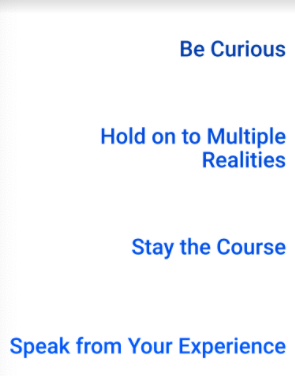
- Be Curious - "Name it, it is okay to say "Ouch, "oops", and "Pause"
- Hold on to Multiple Realities - Within context of power and privilege, instead of using "But" use "And" to promote impact over intent.
- Stay the course - "no one is the only expert or the expert in everything. We are all learning, be willing to 'try things on'"
- Speak from your experience - "Use 'I' statements, not attributions"
These four guidelines surpass just thinking from a DEI perspective and flow into how we should move about our daily lives. They remind us to: not fear curiosity, for that's how we grow; realize that our perception may be different than someone else's and that's okay, learn from each other, allow yourself to be wrong and to be right, and share your knowledge with others. Lastly, by speaking from experience, we lead ourselves to the fact that we know more than we give ourselves credit for.
That being said, continuing to learn and educate ourselves is key. Mr. Cole used the analogy of "Left hand Vs. Right Hand" and how something as simple as this can be so divisive. Using a list of "soul crushing problems only left handed people understand" credit of buzzfeed 2014. The list is quite extensive and most are everyday products such as scissors, ice cream scoops, can openers. All of these things right handed people take for granted because, when manufactured in mass production, right handed typically wins out. Leading people who are left handed having to account for these simple luxuries at a higher monetary cost. As well, when someone is left handed they are typically called out for it simply because left handedness is not the typical norm.
Just seeing how something as simple as a pair of scissors can lead to physical discrimination, highlights the conversation about racial discrimination. We do not always look at the issues that are present if they do not personally affect us. Leading back to the four guidelines Mr. Cole presented, this resonates closely to staying the course, as well as being curious. Ask questions, be open, and and continue to educate yourself, your friends, family, and students. Support one another and learn from each other. |
|
EdPuzzle in the Classroom
By: Leanne Aiello
|
If one good thing had to come out of the pandemic we are all facing, it has been how creative and innovative we've been forced to be! The collaboration, new software, and safety guidelines have brought out some of the best ideas that can be carried along with us into the classroom far beyond this pandemic.
My classroom has been using a mix of different technology in the room this year that has been discovered during the past few months. This has also transferred to our in-person learning as well. One platform in particular that has made a huge difference in the students' learning is EdPuzzle.
EdPuzzle is digital software that takes videos of all kinds and turns them into an interactive activity. Teachers upload or choose a video and then add custom questions that go along with it. While social distancing is one of our most important guidelines to follow, EdPuzzle has helped my students learn independently while still receiving effective instruction. While they watch an instructional video, the questions made by the teacher pop up as a multiple choice response. Students choose an answer and the video continues to play. The video provides auditory and visual support that is so beneficial to student focus and comprehension.
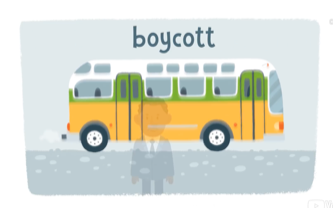 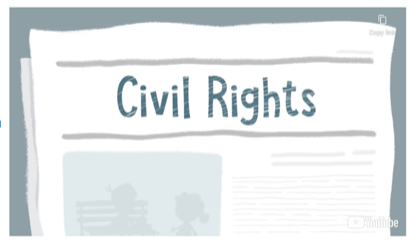
At LABBB, an overall goal throughout the schools is to promote the most independence we can for our students. They are capable of far beyond what we can imagine and providing them with opportunities to showcase their abilities is so important to their growth, confidence and future success. Including fully independent lessons, like EdPuzzles, during the day to practice skills being taught to them really helps to not only show us as teachers that they can accomplish things on their own, but it shows the students that they can do it as well!
|
|
Make the World Better Together
By: Amanda Macadam, RN, BS
|
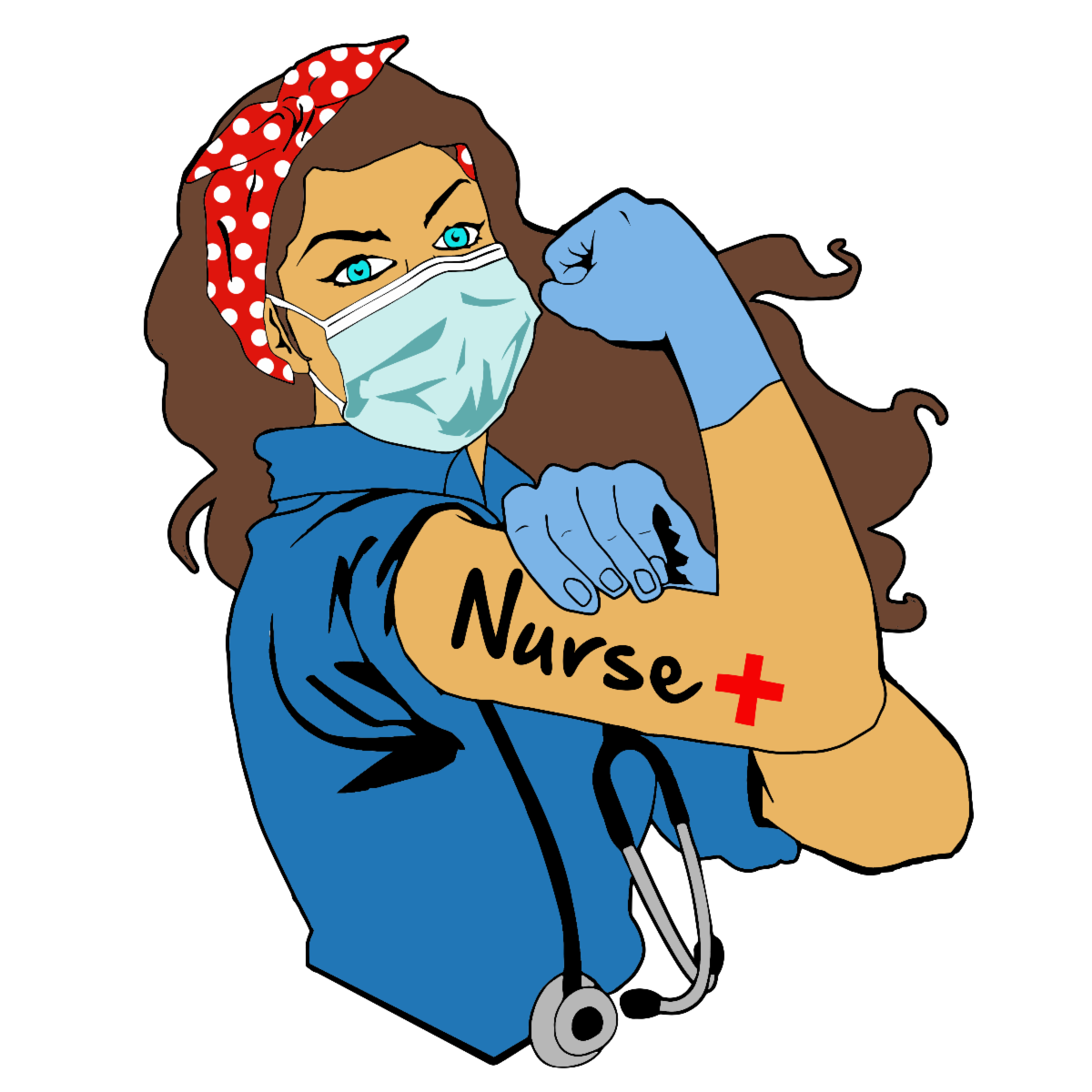 I have a quote from the late philosopher and poet Rabbi Jonathan Sacks, posted up outside of the LABBB Arlington health office. It reads, "Optimism and hope are not the same. Optimism is the belief that the world is changing for the better; hope is the belief that, together, we can make the world better." (from To Heal a Fractured World: The Ethics of Responsibility.) I have a quote from the late philosopher and poet Rabbi Jonathan Sacks, posted up outside of the LABBB Arlington health office. It reads, "Optimism and hope are not the same. Optimism is the belief that the world is changing for the better; hope is the belief that, together, we can make the world better." (from To Heal a Fractured World: The Ethics of Responsibility.)
This quote feels especially true in the Fall of 2020, when the LABBB nursing department is working harder than ever.
I can only speak for myself and say that I have always felt proud to be a nurse. Nursing has always been a profession where we seek to care for the people around us to the best of our ability, and working in schools with a varied and unique student population is no exception. In the best of times we work hard to get our students into class, meet their health needs, and coordinate the care that happens in school and on community trips. In the best of times we are busy.
This year we are working with the constraints of a new virus and with rapidly evolving public health scenarios. We are providing support and training to our LABBB colleagues. We are a funnel for all of the questions. We are watching health trends, working with public health departments in each of the LABBB towns, sharing resources and support with other school nurses, and (always!) learning. You may hear our voices over the phone, or see our signatures on emails. You may see us when you drop off your students. Our familiar faces are now behind masks and face shields. When we call you, our voices come through the line muffled by our PPE. You are hearing from us more than ever before as we work together to make the LABBB Collaborative a healthy and safe place for our students and staff.
When I read these words from Rabbi Sacks, I am reminded that I am not working alone, and that Hope is something that we put into action. We can hold both Optimism and Hope. One does not exclude the other, but sometimes it is hard to be optimistic because we are tired, and everything around us has changed. In those moments, we can take a breath, roll up our sleeves, and get to work- together. Together we can carry on the work of Hope.
|
Thanking Those Who Have Served
By: Alicia Dessanti, Transition Counselor
|
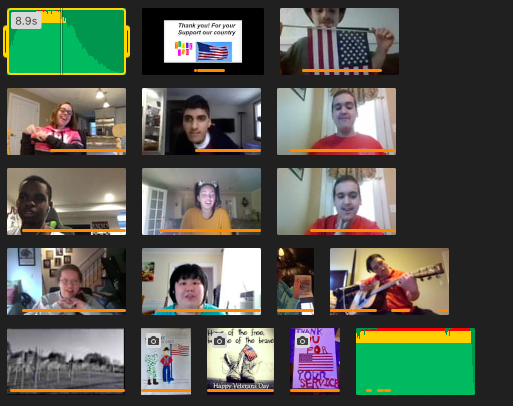 In honor of Veterans Day, Bedford LABBB students who are typically involved in LABBB's community transition sites created a "thank you" video for the veterans at The Bedford Veterans Affairs Medical Center in Bedford. Students produced recordings and made pictures thanking the veterans. One student shared his musical talents by playing the guitar and singing a patriotic song! Students were involved in the entire process of developing the movie, including arranging the video clips and selecting the audio. This was a true collaborative effort between Bedford LABBB Staff, students, families of the students, and The Transition Department. https://drive.google.com/file/d/1DSiBgS0KWBj5r-IoYZnNhhx1L9vtBITj/view is a link to the mp4 recording. In honor of Veterans Day, Bedford LABBB students who are typically involved in LABBB's community transition sites created a "thank you" video for the veterans at The Bedford Veterans Affairs Medical Center in Bedford. Students produced recordings and made pictures thanking the veterans. One student shared his musical talents by playing the guitar and singing a patriotic song! Students were involved in the entire process of developing the movie, including arranging the video clips and selecting the audio. This was a true collaborative effort between Bedford LABBB Staff, students, families of the students, and The Transition Department. https://drive.google.com/file/d/1DSiBgS0KWBj5r-IoYZnNhhx1L9vtBITj/view is a link to the mp4 recording.
Students also had the opportunity to build their professionalism and interview skills by interviewing veterans who now work at LABBB. This experience also taught students about sacrifice, what it means to be a veteran, and gained a new respect for these staff members who generously shared their stories and time.
Happy Veterans Day to all who have served and a special thanks to LABBB veterans Jedrek Miskevitch, Peter Ciampa, Paul O'Connell, and Meaghan Henneberry!
|
|
Supporting your student to become their own best advocate.
By: Sara Carver
|
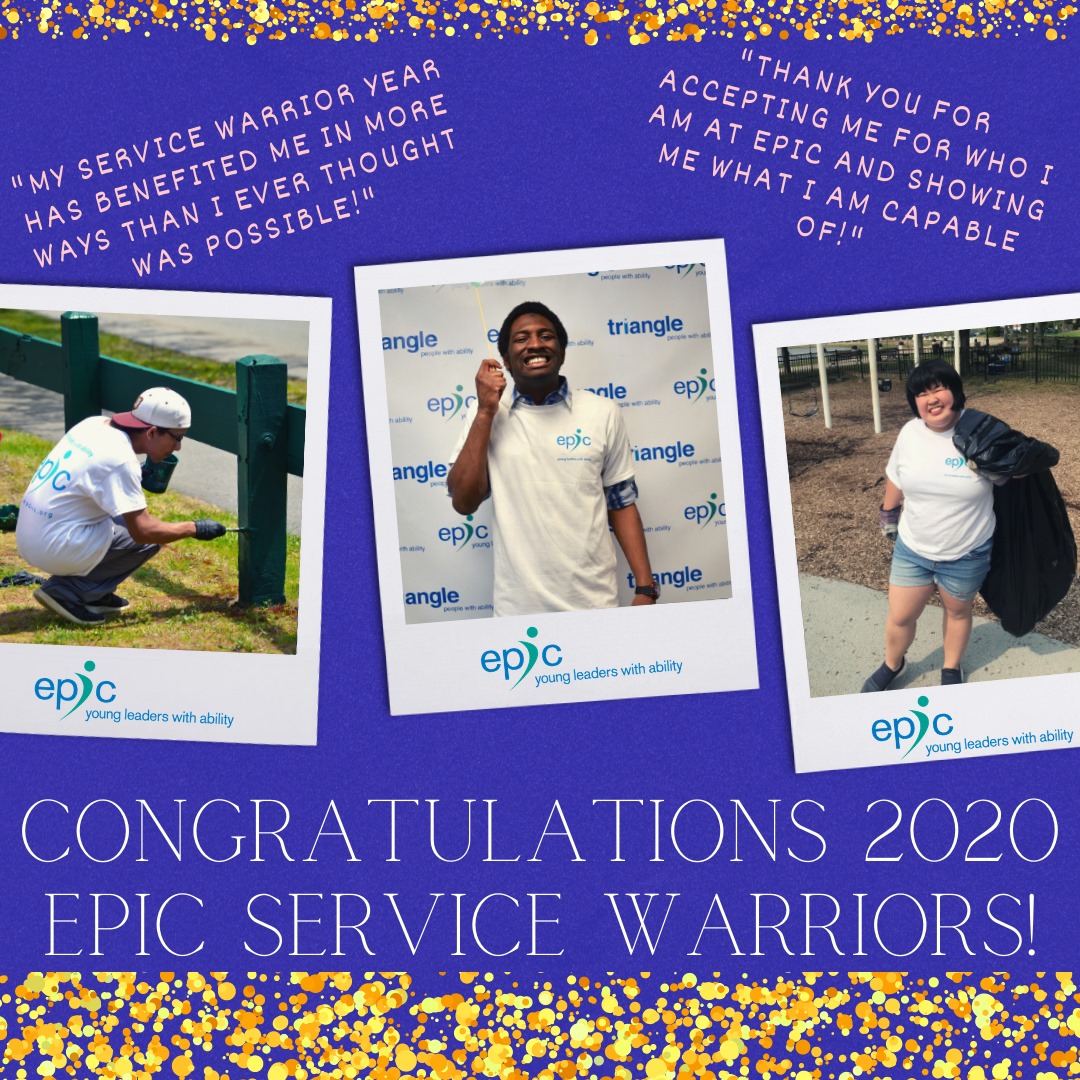 As a speech pathologist in one of LABBB's high school-transition aged classrooms, I often consider, "What are the most vital communication skills our students need as they transition into the adult world?" While this question has many answers and avenues it may lead down, I often arrive at self-advocacy. Self-advocacy, the action of representing oneself, views, or interests, in actuality is much more than a single act. For the disability community, self advocacy is a crusade born out of the civil rights movement of the 60s. More specifically, the disability rights movement is a social and political campaign that has resulted in some of the most broad sweeping legislation we are all familiar with today, including the ADA and IDEA. As a speech pathologist in one of LABBB's high school-transition aged classrooms, I often consider, "What are the most vital communication skills our students need as they transition into the adult world?" While this question has many answers and avenues it may lead down, I often arrive at self-advocacy. Self-advocacy, the action of representing oneself, views, or interests, in actuality is much more than a single act. For the disability community, self advocacy is a crusade born out of the civil rights movement of the 60s. More specifically, the disability rights movement is a social and political campaign that has resulted in some of the most broad sweeping legislation we are all familiar with today, including the ADA and IDEA.
Self Advocacy at LABBB So how does one of the largest civil rights movements of the past century relate to our students today? LABBB has worked to understand just that, partnering with the organization EPIC (Empowering People for Inclusive Communities) for professional development programs including: "Understanding Ableism" and "Empowering our students to be their own best advocates". The trainings have become fast favorites, as our staff have been challenged to be vulnerable and deeply self reflective to better understand the barriers our students face daily.
As we peel back the layers of ableism, the discrimination or prejudice against peoples with disabilities, that are embedded into our culture, we begin to recognize that seemingly harmless actions contribute to a power dynamic that puts our students at a disadvantage. Media framing disability as tragic or heroic, wheelchair ramps found through an establishment's back alley, speaking for our students in the community, or assuming help is needed without asking, all degrade the disability community's credibility for self advocacy. EPIC prompted us as educators to combat these habits via promoting self advocacy, involving students in their IEPs, increasing representation of our students in the curriculum we use, and assuming competency of all students we service.
Self-Advocacy at Home Outside of the school environment, there are ample opportunities to model and promote self advocacy for students and adults of any age. Caregivers can model self advocacy using "I statements," a loose formula being: "I feel _______, because _______. I need __________." Simple routines like leisure activities and meal selections, to more daunting tasks such as self regulation or health and safety choices, can all be addressed through the use and adaptation of "I statements." Examples may include: -
"I feel tired because I couldn't sleep last night. I need to take deep breaths so I can stay calm."
-
"I feel like I have a stomachache and headache from the long car ride. I need medicine to help my body feel okay."
-
"I feel like I need more energy because I have a busy day. I need to eat a big breakfast."
-
"I feel anxious because I had a busy day. I am going to choose to listen to relaxing music instead of an action tv show, to help me relax"
Caregivers can progress to narrating student observations e.g. "I notice you have a lot of energy because your body is moving fast. Doing 10 jumping jacks may help you feel more in control." It may also be helpful to scaffold these conversations based on your student's understanding of self advocacy. Start by discussing likes vs dislikes, move on to talk about personal strengths vs areas of beneficial support, note when it is necessary to ask for help. All of these topics can improve self awareness, which is implicit to self advocacy skills.
More Information:
Looking for some additional programs to support your student in becoming their own best advocate? Check out EPIC! Their programming extends outside of professional development to youth groups. For self advocates aged 14-24 EPIC has a spectrum of programming including: youth nights, "Queerable" support groups, youth panels on current events, and service programs that develop leadership through volunteer activities. Their hubs are based out of both Worcester and Boston, and they have creatively transitioned to online platforms at this time. If you're looking for any additional info check out their website at https://www.epicleaders.org/ or email, [email protected], Tell them LABBB sent you, and watch as your student becomes empowered to be their own best advocate. |
|
Celebrating Diwali
By: Jessica Stuart and Kate Thompson
| |
This month we have been learning about the holiday Diwali. Diwali is the festival of lights. As a class we have been reading the book Lights, Camera, Diwali! written by Amita Roy Shah and illustrated by Diane Lucas. The students have been learning about the different traditions about this holiday. One tradition is the lighting of the Diya. A Diya is a small type of lamp, lit on the night of Diwali. The students each got to make their own Diya while following the sequence of how to make one.
|
| LABBB Recreation and Social Opportunities |
 We have started three LABBB zoom activities for the Fall: We have started three LABBB zoom activities for the Fall:
Boxing on Mondays from 3:00-4:00PM
The class is taught by Todd Paris from his Lucky Punch Boxing and Fitness studio. The students are exercising and learning new punching techniques right from their homes.
Arts and Crafts Wednesdays from 3:30-4:15
This class is taught by one of our LABBB ICEI staff, Clara Palmer, art therapist. Students create a different craft each week and then share what they have done with the group.
Bingo group Wednesday nights from 6:30-7:30
Run by APE staff, Danielle McMahon. Most students are playing two cards at a time now and having a blast. We have incorporated stretching and snack time between games.
LABBB is still offering our monthly dances on zoom, which have been very well attended. Our Halloween dance had over 100 attendees between LABBB students and Best Buddies.
The zoom activities are not what we are used to doing in LABBB Recreation, but they are going very well and everyone is having a great time in these classes.
Save the date for upcoming events: -
Thanksgiving Dance: November 19, 2020 6:30-7:30.
-
Holiday Celebration Dance: December 17, 2020 6:30-7:30.
The health and safety of our LABBB Community is of utmost importance. Due to current conditions, we are greatly disappointed to announce we must cancel the 2020 LABBB/Best Buddies Craft Fair, but hope to be able to bring this event back in 2021.
The good news is The Lexington Lions Club will still be collecting coats for their coat drive. Contactless drop off will be available on January 9, 2021, from 2:00-6:00 at the Lexington Knights of Columbus (177 Bedford St. Lexington, MA). Drive to the back, have coats in the trunk and Lions members will take them out for you.
Have a happy and safe holiday season.
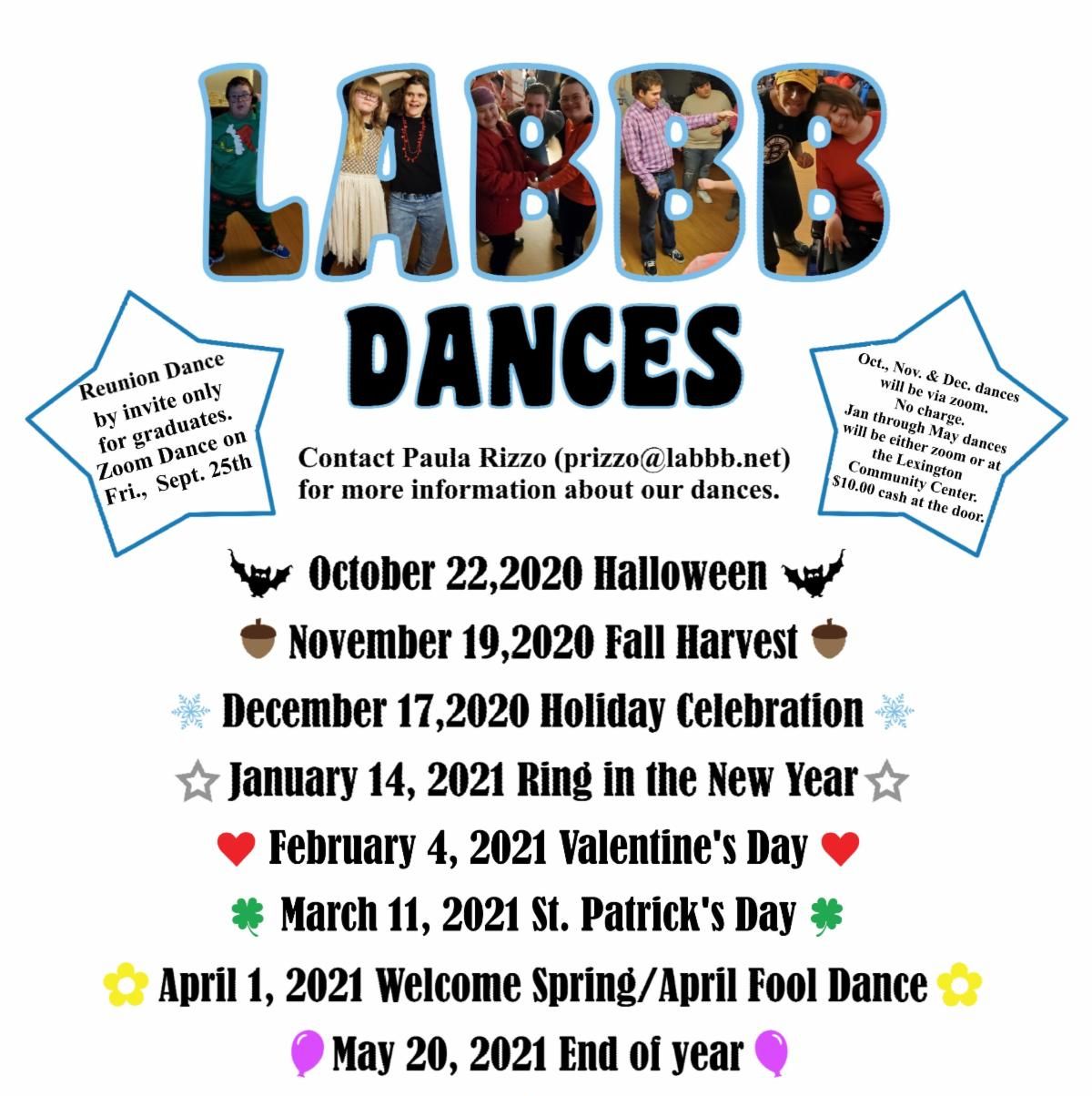
|
A LABBB PODCAST:
Executive Director, Patric Barbieri, Hosts a Podcast talking about special needs planning and resources related to our community
|
In Episode #21 We have our first guest of the year and joining us is Brendan Aylward. Brendan has a degree in special education from Lesley University and owns Unified Health and Performance in Lancaster MA. Many LABBB students work out at his gym and he has created a unique culture in his gym integrating student with special needs with all gym members. Brendan's mission aligns with our mission in LABBB and he has a vision to continue to expand his business and offering more services and inclusive opportunities for students with special needs. He also created AdaptX which is a training program to become a coach for adapted fitness programs for athletes with disabilities and he talks all about it in this podcast. Click here to view Episode #21
.
|
|